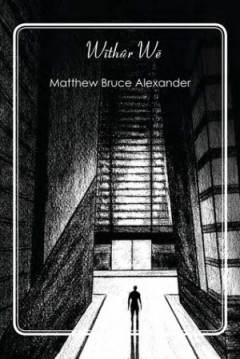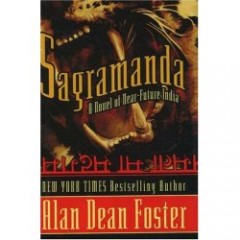A few notable things I ran across recently:
- Will Thomas of The Atlas Society (formerly known as The Objectivist Center) argues that transhumanism is compatible with Objectivism.
- Kylie Sturgess, in her Curiouser and Curiouser column for the Committee for Skeptical Inquiry, interviewed Scott Sigler. I hadn’t heard of him before, but apparently he’s known as a podcaster and now also as an author of techno-thrillers.
Sigler describes skeptics as people
who were spreading the other side of the information instead of misinformation. They are out actively encouraging people to think for themselves, and what’s been interesting is that they’re not necessarily telling people “this is bunk.” They are encouraging people to think critically about things and learn how to address things when you run into them.
He goes on to mention how, among other things, evolution is being challenged in America. But there’s a flipside to long-accepted, fairly well-established science being attacked in knee-jerk fashion by those faith-based types leery of science in general and of science that challenges their religious beliefs in particular. Sometimes science can become corrupted in politically-charged fields, and scientists lose their objectivity. I’m reminded of an old post I wrote about scientific skepticism in relation to global warming alarmism. I riffed off of Clarke’s First Law of Prediction and Asimov’s Corollary.
But to get back to Scott Sigler, has anyone read any of his work? If so, what do you think? Do you recommend it?
[continue reading…]
Help Promote Prometheus Unbound by Sharing this Post


[Warning: Contains some spoilers, mainly in the 6th and 7th paragraphs.]
Every so often a book comes along that truly makes you appreciate writing as a subject; one that truly captures the imagery that we see and feel in our lives when we so often lack the time for reflection.
Wĭthûr Wē is such a book. Yet, such a recommendation doesn’t quite do it justice because its beautiful imagery is only a backdrop for a rich libertarian narrative and struggle of ideas.
Wĭthûr Wē is set several centuries in the future. We never learn the exact year but late in the book we discover that it must be the 28th century. Humans have colonized a small portion of the galaxy — perhaps a thousand light years across — but have yet to discover any alien civilizations. Only the three million year old Ruins on the planet Kaldis provide any proof that non-human intelligence exists, or at least existed once, in the universe.
Alistair Ashley 3nn, the main character of the tale and mouthpiece of Rothbardian philosophy, has just returned from his tour of duty on Kaldis, a human colony at war over their form of government. His experiences have obviously marked him, because those who knew him before he left remark on how different he now is, both physically and emotionally. Alistair has prepared well for his return to Aldra, his home planet, and its tightly regulated — and therefore wÄthà»ring — economy. Through a clever, and very sci-fi, technique, he smuggles instructions for making black market medicine and sells them to black market merchants. He demands gold, not the easily inflatable Aldran Credit which is nothing more than a bit of electronic information stored on a magnetic strip.
Alistair, who has disavowed the 3nn which the government tacked onto his name, was taught the principles of libertarianism by his grandfather who died while he was “off” on Kaldis. He returns angry at the atrocities he has seen and his anger only grows when he sees how much further towards serfdom his home planet has travelled in the four cycles (years) since he has been off. When his father’s home is stolen by the government in an Aldran version of eminent domain, he uses the money from his medicine sale to begin his own private rebellion. He begins by burgling the house of the politician who stole his father’s home, bitterly noting as he leaves that most people would consider Alistair the thief, and not the politician.
[continue reading…]
Help Promote Prometheus Unbound by Sharing this Post
That was to be the subtitle for my chapter in Open Court’s recent addition to their Popular Culture and Philosophy series, Transformers and Philosophy: More Than Meets the Mind. Alas, no subtitles made it into the book.
I have official permission to provide a pdf copy of my chapter, “Freedom Is the Right of All Sentient Beings. Technically, I don’t think I really need legal permission; I don’t recall signing over to Open Court the copyright that federal law automatically vests in me as the author. Anyway, download it from that link and enjoy!
The chapter title comes from a quote by Optimus Prime in the first of the recent live action movies (see my review). The chapter itself is kind of a condensed and lite version of the Aristotelian-liberal theory of virtue ethics and natural rights explained in more detail in my dissertation, applied to the transformers and to artificial intelligences more generally.
~*~
Cross-posted at Is-Ought GAP.
Help Promote Prometheus Unbound by Sharing this Post

This is the second of two book/movie reviews I had published in the Fall 2007 issue of Prometheus, the quarterly newsletter of the Libertarian Futurist Society.
Sagramanda: A Novel of Near-Future India
By Alan Dean Foster
Hardcover, 287 pages
Pyr/Prometheus Books, 2006, $25.00
Alan Dean Foster’s Sagramanda is a far better novel than his Transformers [see my review]. While not especially libertarian, it is also far more so than his Transformers. Sagramanda is a science fiction techno-thriller set in the near-future Indian city of the novel’s title. In this, Foster’s novel follows in the footsteps of Ian MacDonald’s River of Gods and MacDonald indeed has a blurb on the back cover in praise of Foster’s novel and remarking on “the growing swell of writers realizing we may be living in the Indian Century.” As far as I can tell Foster does a good job of capturing the spirit and atmosphere of India. (My wife is Indian but she was unable to read the novel before the deadline for this issue.)
[continue reading…]
Help Promote Prometheus Unbound by Sharing this Post

This is one of two book/movie reviews I had published in Fall 2007 issue of Prometheus, the quarterly newsletter of the Libertarian Futurist Society. See also my chapter in Transformers and Philosophy: “Freedom Is the Right of All Sentient Beings” (pdf).
DreamWorks SKG, 2007
Directed by Michael Bay
Screenplay by Roberto Orci and Alex Kurtzman
Starring Shia LaBeouf, Megan Fox, Josh Duhamel, Anthony Anderson, Jon Voight, Rachael Taylor, John Turturro
Transformers: The Novel
By Alan Dean Foster
Paperback, 304 pages
Ballantine/Del Rey, 2007, $7.99
This summer saw a blockbuster movie remake of a classic animated television series and movie. Transformers retells the story of the millennia-long conflict between the Autobots and the Decepticons – both factions within a race of sentient alien machine-life forms – but this time the story is told in live action and primarily from the human perspective. Die hard fans of the original television series and movie may not like some of the changes made to the characters and storyline, but the movie succeeds on its own merits. The novel by Alan Dean Foster, based on the screen play, however, is not so good.
[continue reading…]
Help Promote Prometheus Unbound by Sharing this Post












